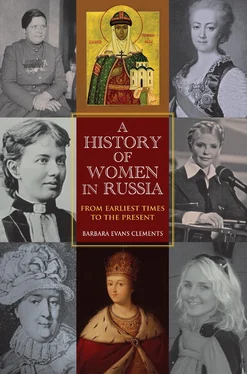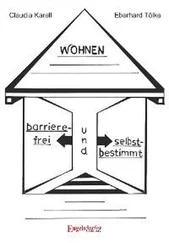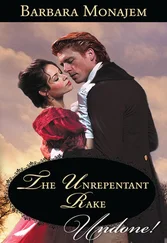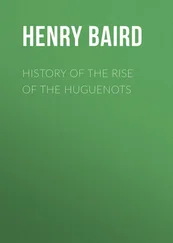Barbara Evans Clements
A HISTORY OF WOMEN IN RUSSIA
FROM EARLIEST TIMES TO THE PRESENT

To my mother,
Champe Winston Evans
(1915–91),
a widow who worked the double shift in the days of Leave It to Beaver.
A good wife is more precious than jewels.
THE PRIMARY CHRONICLE

When the Devil himself has failed, he sends a woman.
RUSSIAN PROVERB
Many people helped me in the writing of this book. Lynn Benediktsson, Jerry Newman, and Christine Worobec read early versions. Their wise observations and kind suggestions guided me through the rewriting. Shelley Baranowski gave me very useful comments on the finished manuscript and some bucking up when I needed it. So did Jerry Mushkat, whose counsel over many decades has been invaluable. Rochelle Ruthchild and an anonymous reader for Indiana University Press made careful assessments that assisted in the final polishing. Tina Kelley, Pete Newman, and Lynn Benediktsson were there through the years with words of good cheer. I hope all these folks like what they read here. I must also acknowledge my mother, who taught me about love, about coping, and about finding joy in simple things. I dedicate this book to her.

This book is a brief history of all the women in all the Russias that existed on the far-eastern European plain during the past millennium. That history includes more than one hundred ethnic groups inhabiting what had become by 1800 the geographically largest country on Earth. Their lives across the centuries deserve telling, from the earliest times to the most recent, so this book begins with the Rus of the tenth century and ends in the present day. It concentrates on the Russians, Ukrainians, Belarusians, Poles, Lithuanians, Estonians, Latvians, and Jews who made up the great majority of the population. It also attempts to bring into view the histories of women of smaller ethnic groups, particularly those who lived in the vast territories of Siberia, Central Asia, and the Caucasus that were annexed by the spreading Russian Empire.
Susan Armitage, a historian of women in the western United States, has written, “We do not wish to create a sweet little cameo version of western history that will slip right into the Hisland story. We want to change the way the story is written.” 1Historians who study women in Russia have the same goal. Over the last forty years, they have done much to uncover the realities of women’s lives in the Russian past, and thereby challenge the Hisland story. And yet, through no fault of their own, their scholarship remains somewhat ghettoized, resisted or overlooked by many who consider women’s history a lesser, didactic, even outdated endeavor. We who write the general histories seek to undermine that resistance by demonstrating that putting women into the history of Russia changes the way we understand the past of all the people of that great nation, women as well as men. Two historians, Barbara Alpern Engel and Natalia Pushkareva, have already done much in their surveys of the history of women in Russia to advance this enlightenment. I hope to add to what they have accomplished. 2
The Focus of the Study
To that end, each chapter begins with a survey of the political and economic history of the period under examination. Each then poses two questions: What did women do in this time, and what difference did they make? Uncovering what they did requires telling the story of their history as a gender. How did gender values and practices structure their lives, how did they react to these influences, and how did both their reactions and the gender arrangements change over time? Women’s beliefs, their roles in their families, their work outside the home, their authority within their families and communities, and the variations in all of these produced by differences in age, ethnicity, marital status, religion, and social rank will occupy much of our attention. Each chapter will also highlight both politically significant women, such as Catherine the Great, and less prestigious individuals whose lives illustrate important themes. Sidebars include pictures and excerpts from primary sources about those women.
It is possible to undertake such a study now because historians and literary scholars have produced so much fine work on the history of women in Russia over the last several decades. Some of these were Soviet scholars, many were British and American, and now they are being joined by a new generation of Eastern and Western Europeans. Synthesizing their findings is a chief undertaking of this book. Included will be citations to English collections of translated primary documents and to translations of my own that bring the voices of the people studied into their own history. The last chapter relies as well on interviews with six Belarusian women, friends and acquaintances of mine whose insights enhanced my understanding of the years since 1991.
This is not a history of gender. Definitions of masculinity and femininity and the norms that followed from those definitions are important subjects in what follows, but this book does not treat women’s history as a lens through which to see something else, such as gender. Nor is it a modern variant on the oft-crooned lament about how difficult the lives of women have been across the ages, though it does document the manifold ways in which patriarchal institutions and the hardships of Russian history affected women. Instead it highlights women’s agency. All the subordinated people of the past must be approached this way, if their lives are to be understood and the historical significance of those lives is to be appreciated.
Changing the Narrative
Bringing women to the forefront changes the established narrative of Russia’s political, economic, and social history. Political history has been the dominant member of that triad, because the government has played a particularly important part in Russian history, and because historians in the European world are heirs to a historiographical tradition that viewed politics as the driver of history. This book puts women into the political narrative of Russian history by discussing their roles in elite politics and in mass movements and highlighting the contributions of important individuals. Tracing women’s participation in politics, which was limited by custom and law and yet was often consequential, yields a more nuanced view of political realities than the top-down, male-centered perspective that traditional historiography gives us.
Women’s history also teaches that one of the great political differences between Russia and the rest of Europe was the attempts by rulers, from Peter the Great onward, to engineer gender change in Russia. This intervention and public responses to it led in the later nineteenth century to an upsurge of political and social activism by women. Their activism drove revolutionary change forward before and during the Revolution and resulted in the implementation of a sweeping program of political, economic, and social emancipation for women in the 1920s. Soviet policies and women’s responses to them in turn made possible the massive industrialization drives of the 1930s and the successful mobilization of the nation in World War II.
Читать дальше













